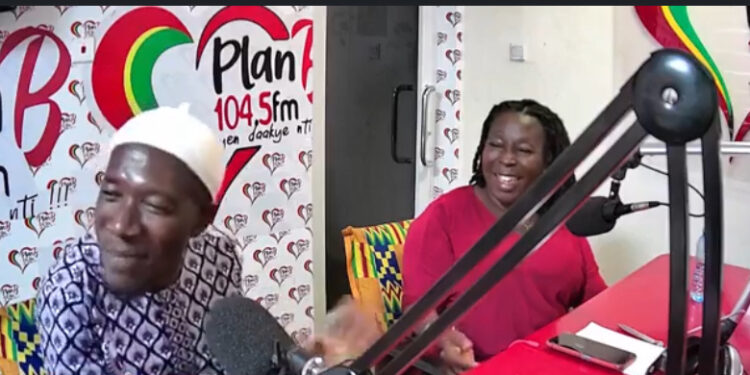In a recent interview on Plan B FM’s Nyansapɔ Fie show, ADR Practitioner Mary Bright Coffie (affectionately known as Auntie May) shared valuable insights on the journey to forgiveness; “Don’t expect instant forgiveness, repentance is merely the beginning of a long process,” she told host Nana Asabea.
Auntie May emphasized that the offended party needs time to heal and grow out of the pain. “Instant forgiveness is not possible,” she stressed. “The wounded person requires space and support to work through their emotions and come to terms with what happened.”
Auntie May’s wisdom reminds us that forgiveness is a journey, not a destination. It takes time, effort, and support to work through the healing process.
By understanding and respecting this process, we can foster deeper connections and true reconciliation. The offender must regularly show or exhibit good deeds to regain the trust of the offended party.
Rev. Sam Manful, Head Pastor of Global Ark of Grace Chapel, added his perspective on the importance of forgiveness. “Why would we want to deny others the mercy of God?” he asked rhetorically. “We pray for forgiveness of our own trespasses and call for mercy, yet sometimes struggle to extend that same mercy to others.” He emphasized that experiencing the consequences of unforgiveness can teach us valuable lessons about the need to forgive others.
Rev. Manful’s words highlight the interconnectedness of forgiveness and mercy. By embracing forgiveness as a journey and actively working towards reconciliation, we can create a ripple effect of mercy and understanding in our relationships and communities.
Together, Auntie May and Rev. Manful’s insights offer a powerful reminder that forgiveness is a process that requires effort, empathy, and understanding from all parties involved. By embracing this journey and fostering a culture of mercy and reconciliation, we can build stronger, more compassionate relationships and communities.










Discussion about this post